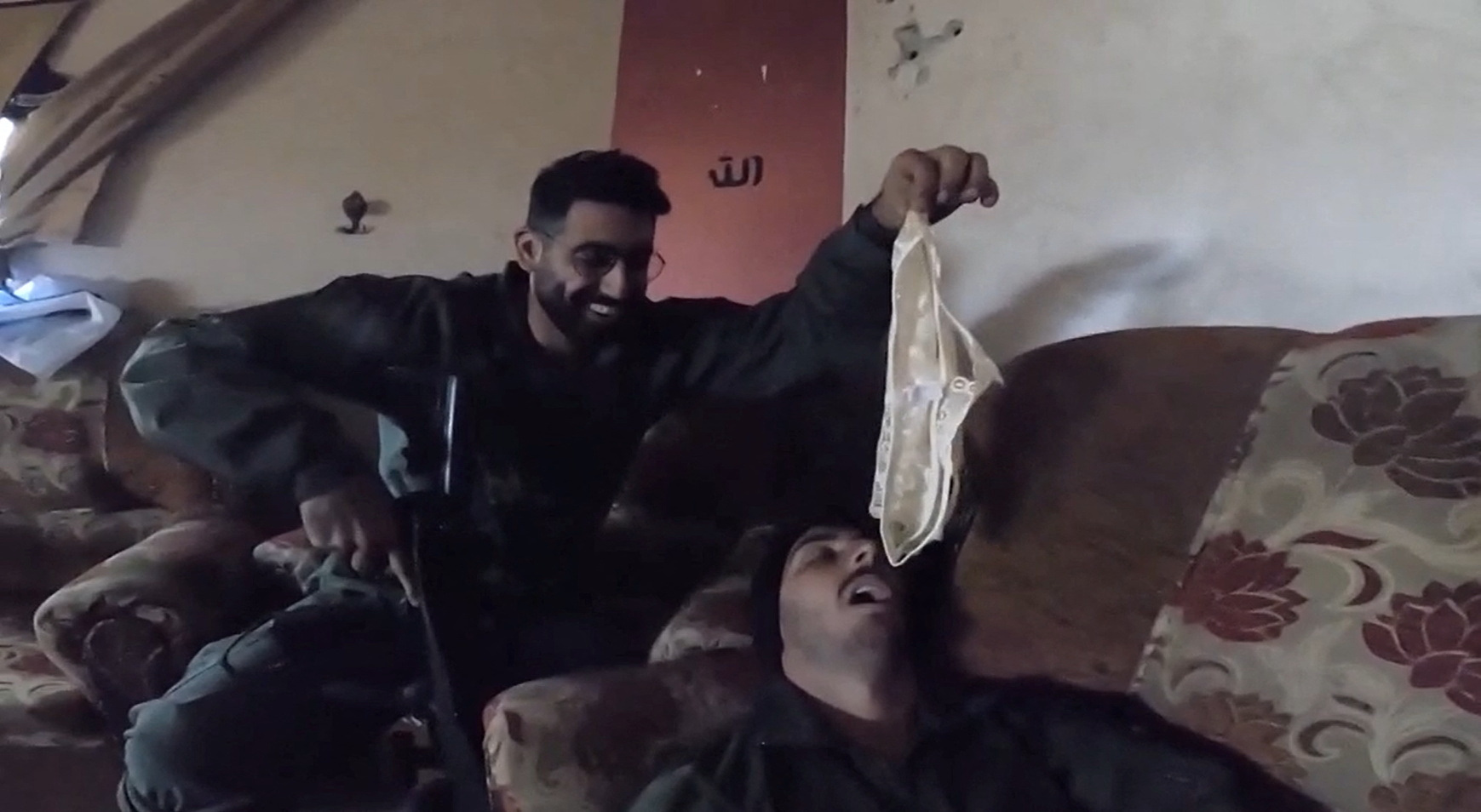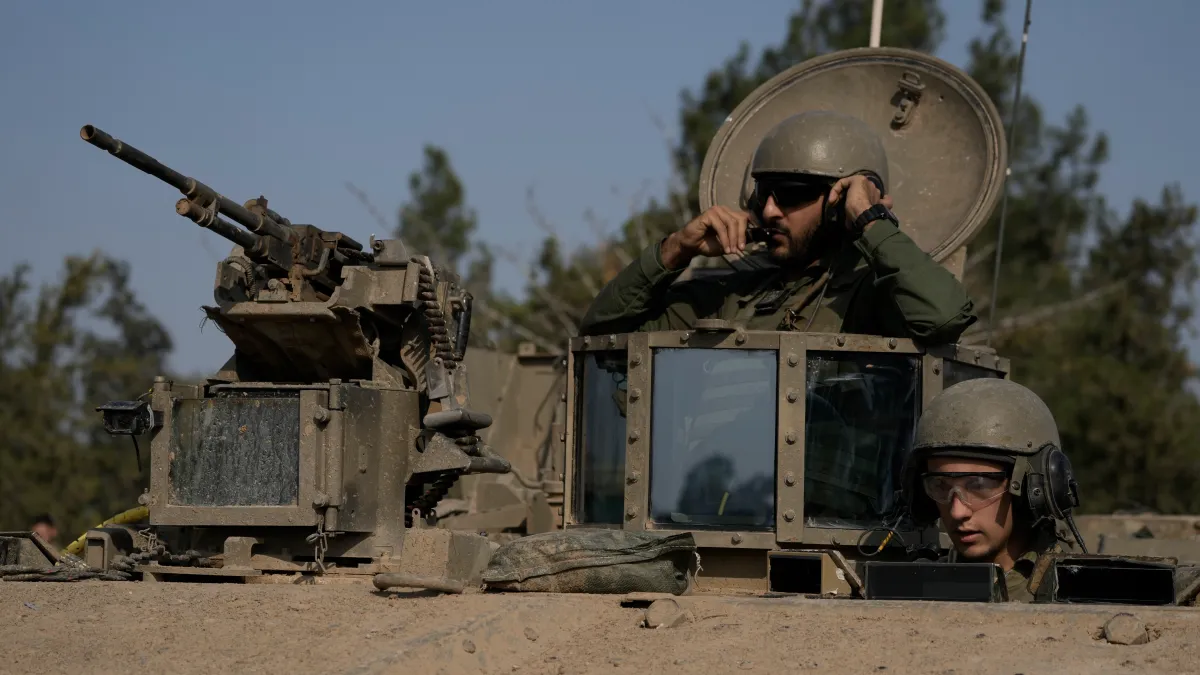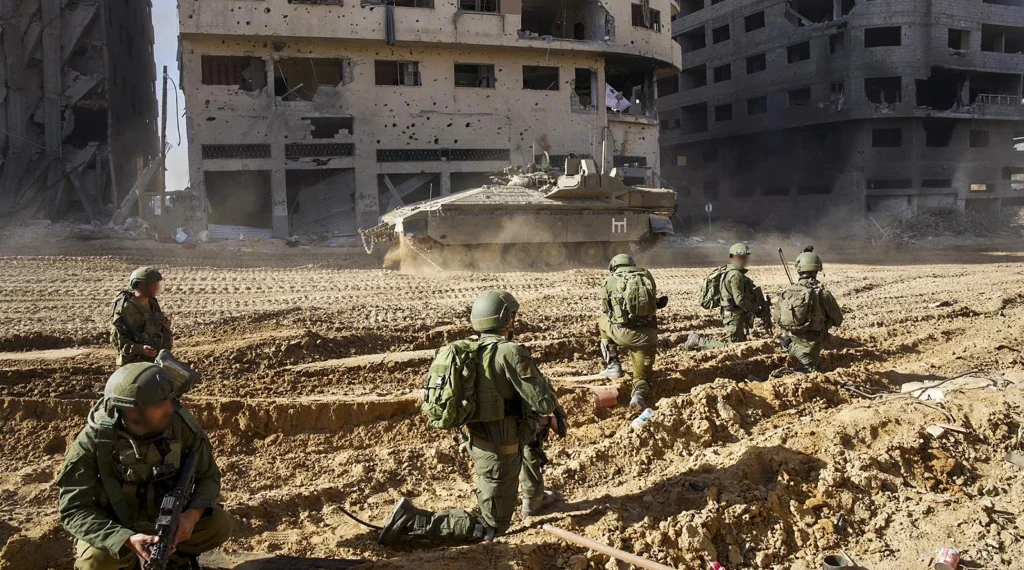Amidst the ongoing conflict in Gaza, Israeli soldiers have come under scrutiny for posting images and videos on social media platforms depicting themselves handling lingerie found in Palestinian homes.
These posts have sparked outrage and raised concerns about the treatment of Palestinian civilians, especially women, during the conflict.
In one disturbing video, an Israeli soldier is seen sitting in a room in Gaza, holding a gun in one hand and dangling white satin underwear from the other over the open mouth of a comrade lying on a sofa.

In another instance, a soldier is shown atop a tank, holding a female mannequin dressed in lingerie and making inappropriate comments about finding a “beautiful wife” in Gaza.
The United Nations High Commissioner for Human Rights, Ravina Shamdasani, condemned these actions as demeaning to Palestinian women and women in general. The posting of such images not only violates the dignity of the individuals involved but also perpetuates harmful stereotypes and attitudes.
Upon further investigation, it was revealed that these posts had been viewed tens of thousands of times after being reposted by a Palestinian reporter, Younis Tirawi.
The images and videos have been widely circulated on social media platforms, drawing international attention to the issue.
In response to inquiries about the posts, the Israel Defense Forces (IDF) stated that they investigate incidents deviating from the expected values of IDF soldiers and take appropriate actions, including opening investigations by the Military Police when necessary.

However, they did not specify whether any disciplinary actions had been taken against the soldiers responsible for the posts.
While the lingerie and mannequin posts may seem trivial compared to the larger conflict, legal experts suggest that they potentially breach international law, particularly Article 27 of the Fourth Geneva Convention, which protects civilians’ dignity and rights during wartime.
These incidents underscore the need for greater respect and protection of civilians, especially women, in conflict zones, and raise questions about the broader implications of such behavior on the perceptions of the ongoing conflict in Gaza.





